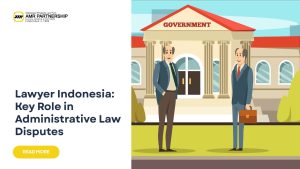
The increasing role of artificial intelligence in innovation has sparked complex legal questions around patent law. As AI systems generate novel solutions in fields such as healthcare, technology, and design, legal frameworks struggle to keep pace. Patent law, which traditionally protects human-driven inventions, is now facing unprecedented challenges. Explore how legal definitions, global cases, and policy reforms are shaping the future of patent law in the age of AI at amr.co.id.
What Is Patent Law and Why It Matters
Patent law is a branch of intellectual property law that grants inventors exclusive rights to their inventions for a limited period. It aims to encourage innovation by protecting the commercial value of inventions. A patent typically lasts 20 years from the filing date and gives the holder the right to prevent others from making, using, or selling the invention without permission.
The fundamental principles of patent law include:
- Novelty, the invention must be new.
- Inventive step (Non-obviousness), it must not be an obvious improvement to someone skilled in the field.
- Industrial applicability, it must be useful and applicable in industry.
Patent law ensures that inventors benefit from their creative labor while contributing knowledge to society. However, lawmakers originally developed this model with human inventors in mind, creating legal ambiguity when machines become the inventors.
How AI Is Changing the Innovation Landscape
AI technologies are no longer just tools; they are becoming co-creators. In sectors like pharmaceuticals, AI is used to design new drug compounds. Engineering teams leverage AI to optimize complex structural designs. When it comes to design, AI can generate architectural blueprints or even fashion patterns.
One well-known example is DeepMind’s AlphaFold, which used AI to predict protein structures faster than any human team. Another is IBM’s Watson, which assists in legal and medical research. These systems generate outcomes that can arguably qualify for patent protection.
However, unlike traditional inventors, AI does not have consciousness, intent, or legal identity. This raises the question “if AI creates something patentable, who should be credited as the inventor?”
READ MORE: How Patents Help Tech Companies Secure Innovation | Best IP Law Firm Service Indonesia
Can AI Be Recognized as an Inventor?
Legal systems around the world currently require a named human inventor for patent applications. This is being challenged by real-world AI innovations.
The most prominent case is DABUS (Device for the Autonomous Bootstrapping of Unified Sentience), an AI created by Dr. Stephen Thaler. DABUS independently generated two inventions, a food container with fractal design and a flashing emergency light.
Patent applications listing DABUS as the inventor were filed in multiple jurisdictions. The outcomes were split:
- European Patent Office and United States Patent and Trademark Office, rejected the application because only humans can be inventors under current laws.
- South Africa and Australia, accepted the applications, recognizing DABUS as an inventor in a landmark decision.
These differing responses show that patent law is being interpreted inconsistently when it comes to AI. This inconsistency affects global innovation strategies.
READ MORE: AMR Partnership: Your Trusted IP Law Firm for Patent and Trademark Registration in Indonesia
Who Owns the Patent When AI Is the Creator?
When AI systems generate patentable inventions, ownership becomes complex. Is it the software developer, the AI operator, the company funding the research, or someone else?
Current laws default to human inventors and typically assign ownership to employers or contractors. But when the “inventor” is a machine, there’s no legal precedent to determine ownership clearly.
This legal gray area creates risks:
- Disputes over ownership rights
- Uncertainty in licensing and commercialization
- Potential loss of valuable intellectual property
Businesses using AI to innovate need clear strategies to assign rights. This includes contractual agreements outlining who owns the output of AI systems. Legal advisory services like amr.co.id can help structure these agreements to reduce risk.
READ MORE: Why AMR Partnership Stands Out as a Top IP Law Firm Indonesia Can Rely On
The Limits of Current Patent Law in the AI Era
Today’s patent laws were designed in a time when only humans could invent. The system is not equipped to handle AI-generated inventions. Key challenges include:
- Inventor identity, most laws require a natural person.
- Disclosure requirements, AI may produce inventions that lack explainability, making it difficult to meet patent description standards.
- Territorial variance, different countries apply different standards, leading to legal fragmentation.
This outdated legal infrastructure slows innovation and discourages companies from pursuing AI-driven patents due to legal uncertainty.
Should Patent Law Be Reformed for Artificial Intelligence?
There is growing pressure to modernize patent law to reflect the realities of AI innovation. Possible reforms include:
- Redefining “inventor” to allow for AI contributions
- Creating new legal categories like “AI-assisted inventions”
- Establishing frameworks for ownership and liability of AI-generated works
Such reforms could incentivize transparency and responsible AI development while preserving the integrity of the patent system.
However, not all stakeholders agree. Some argue that recognizing AI as an inventor would devalue human ingenuity or create legal chaos. Balancing innovation with legal clarity remains an ongoing policy debate.
READ MORE: What the “Nuansa Bening” Case Can Teach You About the Role of a Copyright Infringement Lawyer
Beyond Patents, Other Ways to Protect AI-Generated Innovations
In some cases, businesses opt for trade secrets instead of patents, especially when inventions are:
- Difficult to reverse-engineer
- Not eligible for patent protection
- Intended to remain confidential indefinitely
Other alternatives include copyright (in limited cases, such as creative outputs like art or music) and contract-based protections (e.g., NDAs and IP clauses in licensing agreements).
For businesses exploring AI-driven innovation, legal firms like amr.co.id can advise on the most suitable protection strategy.
READ MORE: How Singapore Is Tackling Copyright Infringement Lexamples Through Deepfake Laws and Site Blocking
Ethical and Social Concerns Around AI and Patent Law
As AI becomes more powerful, concerns are growing about ethical and economic consequences:
- Concentration of innovation, big tech firms may dominate AI patents, stifling smaller players
- Data bias, AI inventions may reflect biases in training data, raising moral concerns
- Job displacement, AI-generated solutions may reduce demand for human inventors and researchers
Patent law does not currently address these broader implications. Some advocate for ethical guidelines and AI-specific regulation alongside IP reform.
READ MORE: Patent Search Price in Indonesia and What Foreign Applicants Need to Know
Global Policy Trends and WIPO’s Role in AI and Patent Law
The World Intellectual Property Organization (WIPO) has initiated global consultations to assess how patent law should evolve in response to AI. Their discussion papers and reports highlight the urgent need for international harmonization.
Key priorities include:
- Establishing a shared definition of AI-generated inventions
- Aligning inventor recognition policies
- Promoting equitable access to AI tools and protections
Countries and companies are watching closely, as these decisions will shape the future landscape of global innovation and legal compliance.
For innovators and businesses navigating this complex space, partnering with expert legal counsel such as amr.co.id is a crucial step toward safeguarding intellectual assets.
- Phone (Hunting): +62-21-29036668
- Fax: +62-21-29036672 to 75
- WhatsApp Customer Service: Click here to chat
- Instagram: @amrpartnership
- TikTok: @amr.partnership
- Facebook: Law Firm AMR Partnership
- Official Website: www.amr.co.id






